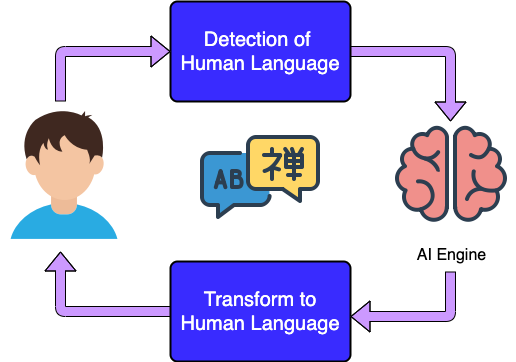Building An Enterprise Chatbot
 摄影: Andy Kelly on Unsplash
摄影: Andy Kelly on Unsplash
Bot in A Box
I observe that some people have this perception and they pronounce a chatbot as chatbox. Perhaps this was due to the typing box we usually seen at the bottom of a chat windows.
Well, what is a chatbot? In short, it is a software that has capability to interact with a human in a natural way via a conversational communication, either by text or voice. Some people name a chatbot as a virtual assistant.
History of Chatbot
The method that been used in the Turing test in 1967 probably well known as the world’s first chatbot which interacted with a human. The evolution then started after 16 years, with more chatbots like ELIZA, JabberWacky, and ALICE. ALICE was my first touch of chatbot during my university study on AI.
To date, we have many modern chatbots which in competitive evolution, led by giant tech company, e.g. IBM’s Watson, Apple Siri, Google Now, Amazon Alexa, Microsoft Cortana and even Facebook Messenger bot.
Architecture

In a high level design, a chatbot must be able to detect what a human input and also be able to transform back from a digital result to a humanised sentence. I found that this is very practical and useful. This flow could be easily scale up with more complex use cases later.
Build from Scratch or Predefined Model?
First of all, you need to know what is your objective to build a chatbot and what problem you are solving? If you are enhancing your business operation by automate and ease the manpower bottleneck, then there is plenty of built in or predefined models on the market for your evaluation. You do not need to build from scratch unless you are looking for a highly intelligent and mixed-conversational AI solution.
By leveraging on predefined model chatbot, you could alway scale up and improve your chatbot by using the collected data. Each enterprise should make use of your collected data to find a new gap beyond your legacy business.
The Trend
According to Gartner’s study, chatbot market size is growing rapidly worldwide, would be over $1.3 billion by year 2024.
47% of organisation will use chatbot for customer care
40% of enterprise will deploy virtual assistants.
Chatbot is expected to be found in high mobility channels, like mobile app, wearable smart device, and in-car entertainment system. In a near future, voice bots would becoming a mainstream.
Conclusion
Defining KPI measurement is a key step in every enterprise AI solution. This will keep reminding “why” do you start the chatbot project. Hence, roll out the chatbot fast with minimal viable product so that you could always monitor and improve your chatbot from time to time.
Do not forget to include a human intervention element in your design. It is always an important element for you to handle outliers conversation which will require human escalation to answer your customer’s queries. All the best!